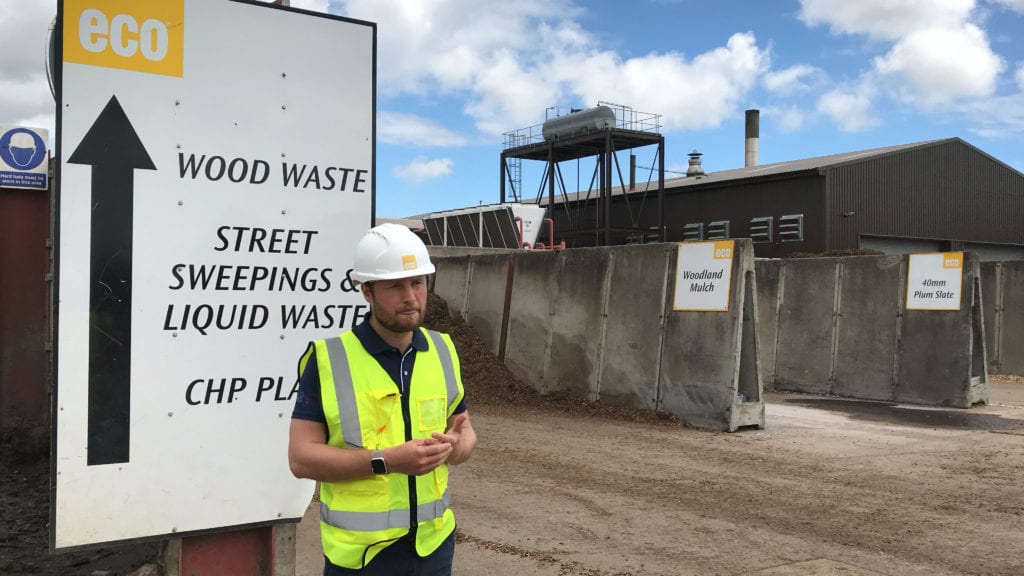Recycling and renewable energy company Eco Sustainable Solutions is celebrating a quarter of a century in business with a new multi-million-pound investment that will allow it to process more local waste and generate more green energy for local residents and businesses.
Eco has announced plans to build an Energy Recovery Facility (ERF) at its Eco Park site in Parley that would help it to process an extra 60,000 tonnes of waste – up to a fifth of that would be recycled and the rest would be used to generate more low-carbon energy.
The planned facility would play a key role in helping local authorities tackle the region’s waste in the years to come, as well as having the potential to provide low carbon electricity and heat for local homes and businesses.
The plant would join Eco’s existing clean energy portfolio – a combined heat and power plant, 77MW of solar panels (both in Parley) and its 1.6MW anaerobic digestion facility at Piddlehinton near Dorchester, and add to the 250,000 tonnes of local waste the company already recycles.
Tackling climate change is a growing priority both nationally and locally, with the UK government setting a target to achieve net zero carbon emissions by 2050 and BCP and Dorset Councils both declaring a climate emergency. BCP Council has set out 153 measures they will take to reduce the impact of climate change, which include tackling waste by reducing items such as single use plastics, increasing recycling and avoiding landfill.
At 60,000 tonnes, Eco’s proposed ERF will provide less than half of the capacity that the councils’ joint waste plan says it could build at the Parley site. That is because the company believes that much more can be done to reduce waste and increase recycling rates even more. To encourage this, Eco is planning to create a visitor centre and education programme to support the local councils’ efforts to encourage everyone to reduce their waste, reuse and recycle more.
“Reducing waste is also tackling climate change,” said chief operating officer Justin Dampney. “There is still a huge amount of waste going to landfill, which is having to be transported out of the county because all of Dorset’s landfills have shut. This increases emissions and ‘waste miles’ and goes against the ‘proximity principle’ that local communities should manage their own waste not only to reduce the burden on neighbouring authorities, but also to create local economic growth and employment. Our plans are at an early stage, and we are keen to hear the views of local residents, community organisations and businesses as we prepare to submit a planning application. We will consult on a draft application in the autumn and aim to submit a full planning application before the end of the year.”
